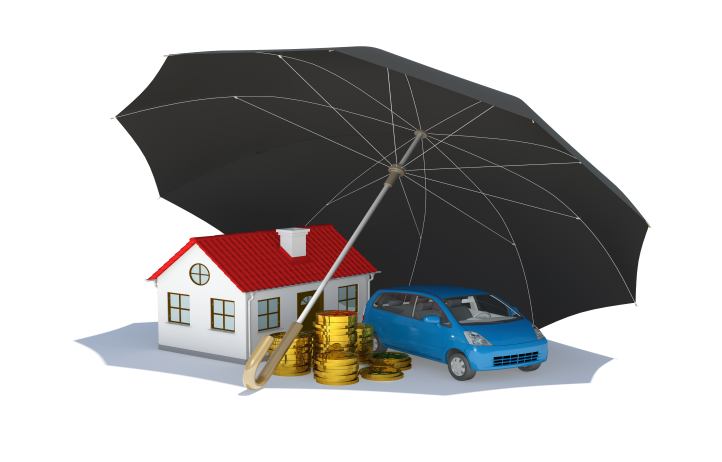EVERYTHING YOU NEED TO KNOW ABOUT THIS ADDITIONAL INSURANCE COVERAGE
When you think about insurance, what comes to mind? Health insurance? Auto insurance? Homeowners insurance?
All insurance provides us with a level of coverage and financial protection in exchange for the premium we pay. We use health insurance to offset the costs of routine medical visits and care, as well as larger expenses like surgery or hospitalization. We pay for homeowners and auto insurance policies hoping we will never need to use them, but if we do, we are covered in the event of emergencies or accidents.
Even with robust insurance policies, there may be times when your coverage is not enough. For instance, if you are in a car accident and the other party decides to sue you for more than your auto coverage limits, how will you pay if you are found liable? This is a situation where umbrella insurance would be useful.
What is umbrella insurance?
Umbrella insurance (AKA excess liability insurance) offers you extra liability protection over and above your other policy limits. If you are sued and deemed at fault, first you look at your homeowners, auto, or renters insurance policies for the coverage they provide, then an umbrella policy covers you above that amount.
For example, if you have been sued after a car accident and found liable for an amount in excess of your auto insurance limit, your auto policy would cover the amount up until its limits and then the umbrella policy covers the amounts above.
What does umbrella insurance cover?
Umbrella insurance covers you and your household members in many different situations. Your homeowners, auto or boat insurance pays first up to its limit, and then umbrella insurance kicks in. It provides liability coverage for bodily injury or property damage to others, and can cover the legal costs to defend you in regard to these issues. Umbrella insurance can be useful in lawsuits involving defamation, libel, slander or invasion of privacy, and your policy may also cover incidents that happen outside of the United States. A few examples are:
- You or your family member accidentally injure someone
- A guest slips and falls on your pool deck
- Your son or daughter posts a libelous comment online and is sued
- Your dog or horse causes injuries
What is not covered by umbrella insurance?
- Umbrella insurance is designed to help you pay for injuries or damages you caused to someone else, but not for those that you sustain.
- Business umbrella policies exist to offer more comprehensive protection for businesses, but your personal umbrella policy will not cover business-related issues.
- If you breach a contract and are sued, your umbrella will not cover the liability.
- It does not protect you in the event that you have criminally or intentionally caused harm.
- Many umbrella policies exclude boat coverage, or will only cover certain types and sizes of watercraft. If you have boat insurance, speak with your agent to learn what extended coverage might be available to you.
How much umbrella insurance do I need?
Umbrella policies start at $1 million and go up in $1 million increments. Generally, you should try to obtain coverage in line with your net worth. High net worth individuals or families, people who are in the public spotlight, or those who serve on charitable boards can face increased likelihood of being sued. You also might be vulnerable to lawsuits if you are a landlord, entertain guests at your home, have a swimming pool, or own dogs or horses.
How can I get an umbrella policy?
It often makes sense to purchase coverage from the same company that handles your auto and homeowners insurance needs. Some umbrella providers require this, or they will not write your policy.
Your insurance agent can help you determine suitable umbrella coverage amounts to line up with your other insurance policies. For example, if your homeowners policy provides liability protection to $300,000, then your umbrella insurance should start at $300,000 and cover you up to $1 million. It is especially important to begin your umbrella insurance where your other policies leave off.
Say you have guests in your home, and someone falls. That person sues you and you are found liable for $750,000. With a suitable umbrella policy in place, your homeowners insurance will cover the first $300,000 you owe, and your umbrella policy will pay the remaining $450,000 balance.
However, if you have a gap in coverage, it can result in a costly mistake. Consider the same situation where you have been found liable to pay $750,000, only your umbrella policy began coverage at $500,000. In this case, your homeowners insurance would still pay the first $300,000 you owe, but the umbrella policy would only cover the amount beginning from $500,000 and going to $750,000. The gap between $300,000 and $500,000 would not have any insurance on it and you would be required to come up with this amount out of pocket.
We recommend that you contact your insurance agent to discuss your specific needs, review your options and get a quote. If you have any questions, please contact us.


